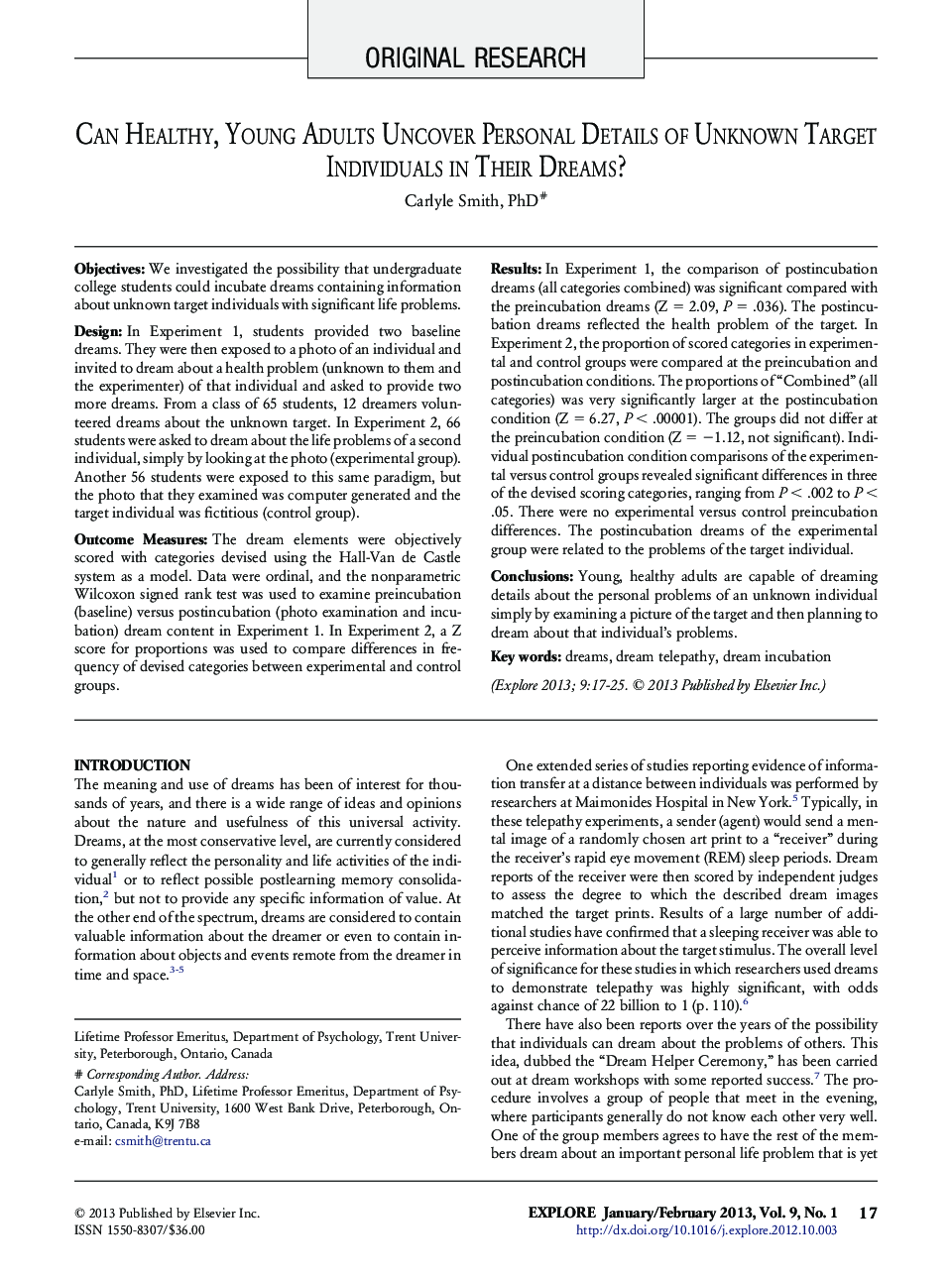| کد مقاله | کد نشریه | سال انتشار | مقاله انگلیسی | نسخه تمام متن |
|---|---|---|---|---|
| 2693121 | 1143502 | 2013 | 9 صفحه PDF | دانلود رایگان |

ObjectivesWe investigated the possibility that undergraduate college students could incubate dreams containing information about unknown target individuals with significant life problems.DesignIn Experiment 1, students provided two baseline dreams. They were then exposed to a photo of an individual and invited to dream about a health problem (unknown to them and the experimenter) of that individual and asked to provide two more dreams. From a class of 65 students, 12 dreamers volunteered dreams about the unknown target. In Experiment 2, 66 students were asked to dream about the life problems of a second individual, simply by looking at the photo (experimental group). Another 56 students were exposed to this same paradigm, but the photo that they examined was computer generated and the target individual was fictitious (control group).Outcome MeasuresThe dream elements were objectively scored with categories devised using the Hall-Van de Castle system as a model. Data were ordinal, and the nonparametric Wilcoxon signed rank test was used to examine preincubation (baseline) versus postincubation (photo examination and incubation) dream content in Experiment 1. In Experiment 2, a Z score for proportions was used to compare differences in frequency of devised categories between experimental and control groups.ResultsIn Experiment 1, the comparison of postincubation dreams (all categories combined) was significant compared with the preincubation dreams (Z = 2.09, P = .036). The postincubation dreams reflected the health problem of the target. In Experiment 2, the proportion of scored categories in experimental and control groups were compared at the preincubation and postincubation conditions. The proportions of “Combined” (all categories) was very significantly larger at the postincubation condition (Z = 6.27, P < .00001). The groups did not differ at the preincubation condition (Z = −1.12, not significant). Individual postincubation condition comparisons of the experimental versus control groups revealed significant differences in three of the devised scoring categories, ranging from P < .002 to P < .05. There were no experimental versus control preincubation differences. The postincubation dreams of the experimental group were related to the problems of the target individual.ConclusionsYoung, healthy adults are capable of dreaming details about the personal problems of an unknown individual simply by examining a picture of the target and then planning to dream about that individual's problems.
Journal: EXPLORE: The Journal of Science and Healing - Volume 9, Issue 1, January–February 2013, Pages 17–25